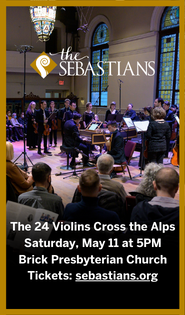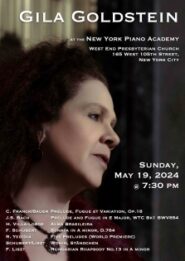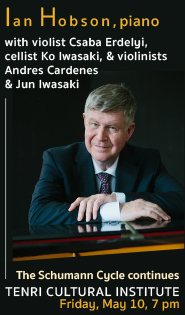Monteverdi Choir artists make a characterful case for a Handel rarity
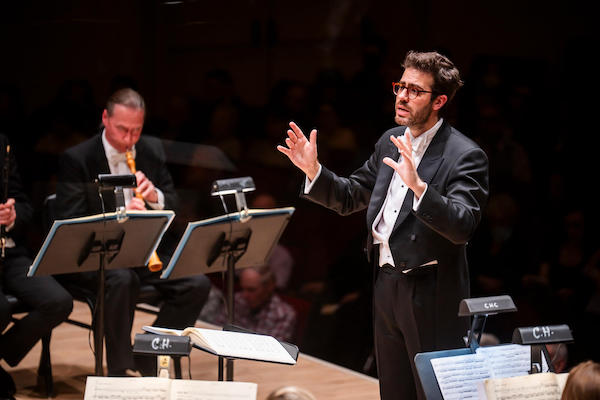
The second program from the English Baroque Soloists and Monteverdi Choir at Carnegie Hall offered Handel’s L’Allegro, il Penseroso ed il Moderato Thursday night. Surprisingly, the work had not been presented in the hall since 1895. Sir John Eliot Gardiner, the founder of these esteemed forces, has championed it since the 1980s.
This concert was led, not by Gardiner, as originally announced, but by Dinis Sousa. In 2019, Sousa became the first-ever associate conductor of the Monteverdi Choir and English Baroque Soloists, as well as its companion ensemble, the Orchestre Révolutionnaire et Romantique. He replaced Gardiner on this tour after the elder conductor slapped a singer after a performance this summer. Following intense criticism, Gardiner subsequently withdrew from all remaining performances in 2023 and is undergoing counseling.
L’Allegro, il Penseroso ed il Moderato is a milestone in Handel’s transition from Italian opera to English oratorio, after the former had gone out of fashion in London. It was hardly Handel’s first work in English, but it was the one in which he displayed a mastery of setting the language comparable to that which he had achieved in Italian. The fact that he was primarily setting the words of John Milton, one of England’s greatest poets. undoubtedly helped.
Translated into English, The Cheerful, the Thoughtful, and the Moderate Man was fashioned by James Harris, a friend of Handel’s, from Milton’s poems, “L’Allegro” and “Il Penseroso’. To add a semblance of balance, Handel requested Charles Jennens, who achieved immortal fame as the librettist of Messiah, to add a concluding section, “Il Moderato.” Critics were so dismissive of Jennen’s efforts, that Handel routinely dropped it from performances.
Harris crafted the two poems as a dramatic dialogue, although there are neither characters nor action of which to speak. What it does contain is vivid imagery which Handel depicted par excellence in wonderfully imaginative and beautiful music for both vocal and instrumental soloists. With this work, Handel became truly British, composing what has been deemed “the most vivid evocation in music of the English countryside.”
As with many of Handel’s works, there are choices to be made when presenting L’Allegro, il Penseroso ed il Moderato. These include cuts to consider and decisions as to what forces to employ. For the first performance, Handel used two sopranos, tenor and bass as soloists. The numbers were bolstered on this occasion—sopranos Samantha Clarke, Hilary Cronin, and Alison Ponsford-Hill; mezzo-soprano Bethany Horak-Hallett; tenors Jonathan Hanley and Nick Pritchard; and basses Alexander Ashworth and Frederick Long.
Sousa projected energy and confidence from the moment he stepped on stage. He launched into the overture before the applause which greeted the performers had subsided. The gesture had its effect, but didn’t signal what was to come. Sousa led a performance that was graceful and airy, although if bite was called for, the violins and oboes were quick to add it.
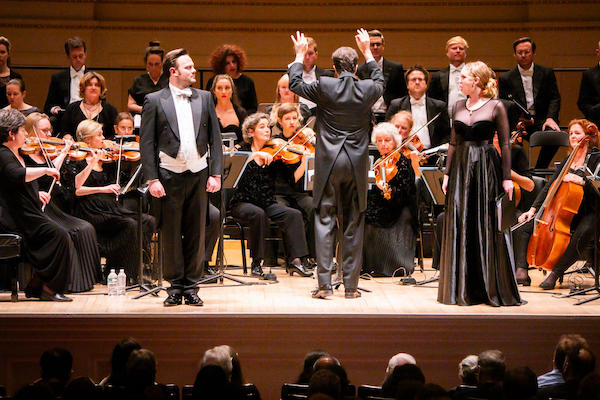
There was no attempt at linking the dramatis personae with a specific singer and the program didn’t identify who sang which piece. The recurrent dimming of lights made reading the text in the program difficult. As such, it was a performance to just sit back and luxuriate in Handel’s gifts as a melodist and some truly marvelous performances.
Soprano Hilary Cronin was a wonder with her lighter-than-air soprano. Especially impressive was her coloratura in “But oh, sad Virgin” with violin obligato played by Kati Debretzeni. In a far lighter vein, was soprano Samantha Clarke engaging in the most delightful exchange of bird calls in “Sweet bird” with flutist Rachel Beckett.
Tenor Jonathan Hanley laughed his way through “Haste thee, nymph, and bring with thee” to the buoyant accompaniment of the chorus. The glory of the hunt was displayed by both hornist Anneke Scott and bass Alex Ashworth in “Mirth, admit me of thy crew!” There was true bravura singing from tenor Nick Pritchard in “There let Hymen oft appear.”
Handel didn’t reserve all the glories for the solo turns however, as chorus and orchestra had their share. The first part ended with the “And young and old come forth to play” in which a keyed glockenspiel added sonorities not often associated with its composer. “Populous cities please us then” was a magnificent chorus with trumpets blazing. The grandeur of ‘There let the pealing organ,’ with its eponymous instrumental solo, was worthy of a Coronation Anthem.
For the alleged shortcomings of Jennens’s work, Handel papered over them with some wonderful music. And the text isn’t too shabby at that, with Jennens having borrow heavily from Shakespeare’s The Tempest for the final duet and chorus. It afforded Cronin and Hanley one final opportunity to beguile in “As steals the morn upon the light,” before the chorus sang “The pleasures, Moderation, give”. It’s majestic, hymn-like Handel, with a message that seems not to be heeded much nowadays and probably wasn’t then.
Daniel Barenboim and the Staatskapelle Berlin will appear in Carnegie Hall’s International Festival of Orchestras on November 30. carnegiehall.org
